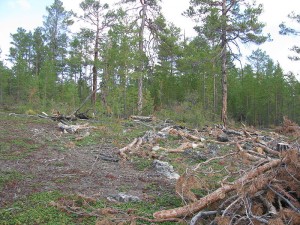THURSDAY, 9 SEPTEMBER 2010
The Millennium Ecosystem Assessment [1] found that 60% of so called "ecosystem services" are in decline. ("Ecosystem services" are resources or processes provided by the natural environment that we, as humans, rely on such as food, water and climate regulation.) And yet the Human Development Index (HDI), an average measure of human well-being across the globe, continues to rise.Scientists writing in the current issue of BioScience [2] have examined four potential solutions to this apparent paradox. They first hypothesis is that we are measuring human well-being incorrectly. They discount this idea on the basis that other measurements of well-being show the same trend as the HDI. A second possible explanation is that our well-being depends only on food services, which are rising, masking a decline in other ecosystem services. Thirdly, technological innovations may have decoupled human well-being from nature. However, the demand for ecosystem services has outstripped all of the efficiency savings afforded by technology. The final suggested explanation is that there is a time lag in the system; we've already passed a number of tipping points and we're just waiting for everything to come crashing down around us.
The paper concludes that a mixture of the second, third and fourth explanations can account for the paradox. So how then should we manage the planet's ecosystems in the future? Technology will never be able to entirely replace ecosystem services; it can only help to manage what's already there. And are there moral issues at stake here too? Does a global increase in human well-being ignore growing regional inequalities? And is it really only human well-being that matters?
Written by Tim Middleton

